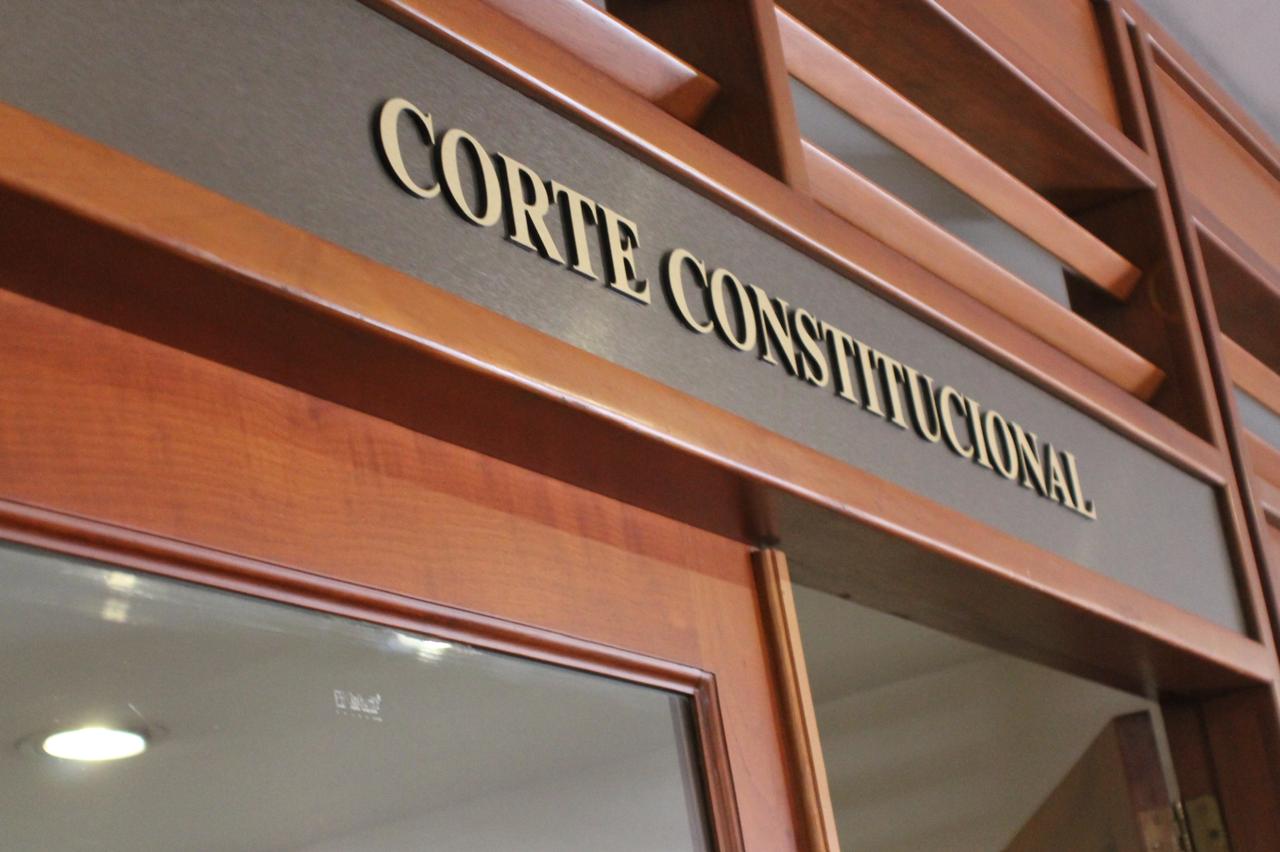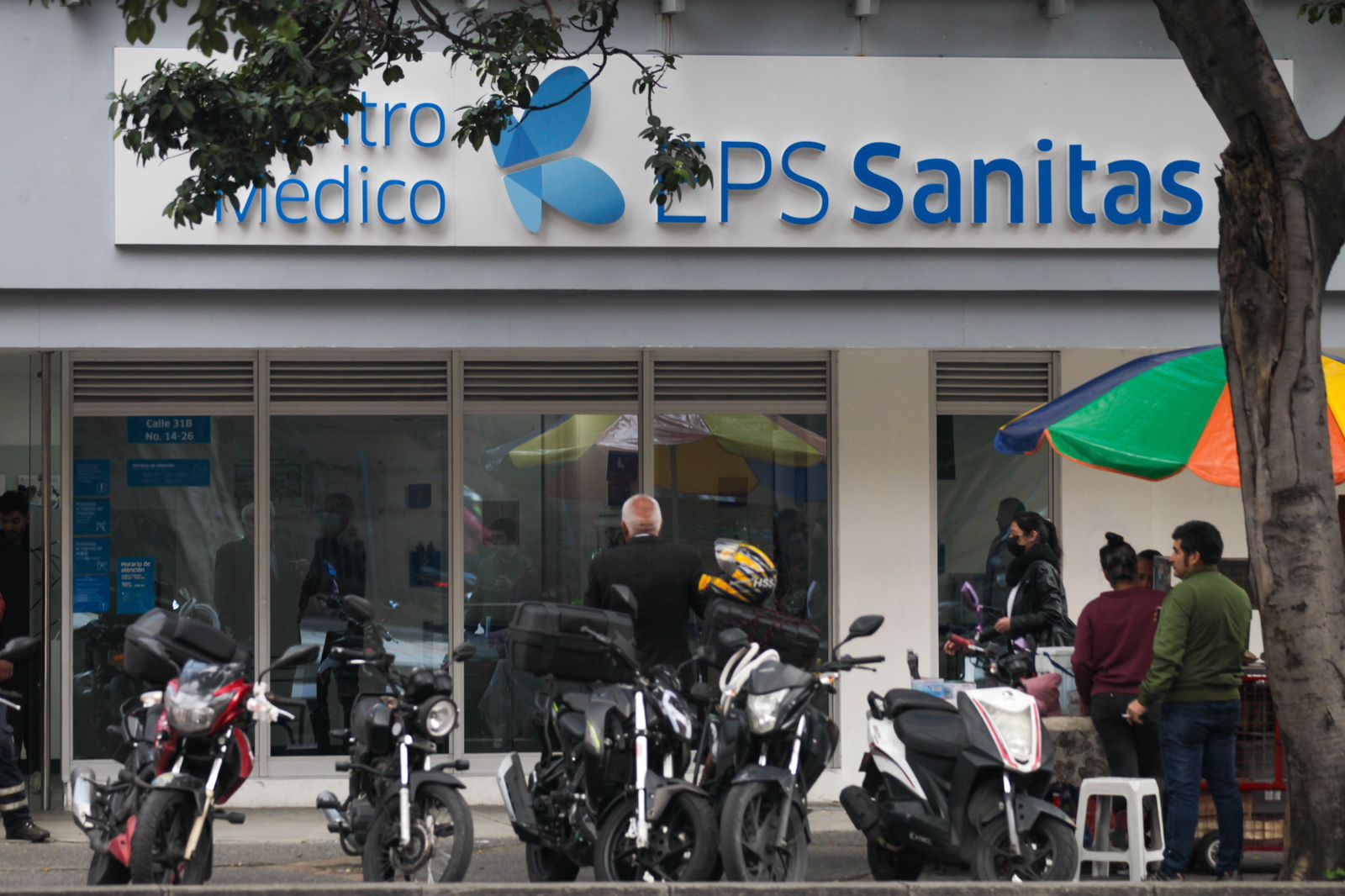What's next for Sanitas and its users after the Constitutional Court ruling? Experts explain the implications.

This Thursday, the Plenary Chamber of the Constitutional Court, in a decision of high impact for the Colombian healthcare system, revoked the administrative intervention that the National Health Superintendency had imposed on the Sanitas EPS and upheld the fundamental right to due process of the Keralty Group entities. This was established in Ruling SU-277 of 2025, presided over by Judge Juan Carlos Cortés González.
The decision was made after reviewing the tutela action filed by Clínica Colsanitas SA, Medisanitas SAS, Keralty SAS, Compañía de Medicina Prepagada Colsanitas SA, EPS Sanitas SAS, and Juan Pablo Rueda Sánchez, legal representative of these entities, against the Superintendency of Health, following the forced intervention imposed by this entity in April 2024.

The Constitutional Court made the decision in ruling SU-277 of 2025. Photo: Courtesy
In previous instances, both the Superior Court of Bogotá and the Supreme Court of Justice had rejected the protection action, finding it inadmissible. However, the Constitutional Court decided to reverse those decisions and, instead, uphold the plaintiffs' right to due process.
The Court went further by nullifying the resolutions that led to the takeover and administrative intervention of EPS Sanitas. Specifically, the following were nullified:
- Resolution 2024160000003002-6 of April 2, 2024, which ordered the takeover of EPS Sanitas for one year.
- Resolution 2024100000003060-6 of April 10, 2024, which corrected the previous one.
- Resolution 2025320030001947-6 of April 1, 2025, which extended the measure for another year.
All of these resolutions, as explained by the Court, violated the due process rights of the affected entities, leading the high court to order their annulment. The ruling details that this decision was made "in accordance with the provisions of the reasoning of this judgment," the high court stated in a statement.

Juan Pablo Rueda has served as president of EPS Sanitas since 2019. Photo: Sanitas
Although the full ruling of the Constitutional Court is not yet known, as at the time of going to press only a statement had been issued by the high court, for experts such as Natalia Jaimes, a lawyer specializing in labor law and social security, it is clear that with this ruling, Sanitas regains full control of its operations and its users will once again be served under the mandate of the insurer and not the Supersalud.
That is, the administrative, financial, and strategic decisions that for more than a year were under the direct supervision of the National Health Superintendency are once again in the hands of the EPS itself. Given that the Supreme Court is the final authority, the Superintendency of Health, by order of the Court, should immediately cease all current intervention measures, including any special surveillance or forced administration.
However, the ruling does not mean a total exoneration for Sanitas. According to the expert, the Court gives it a new opportunity, but also imposes a clear burden: to demonstrate that it can operate responsibly, efficiently, and with a user-centered approach. “The Court gives it a new opportunity, but also a burden: to demonstrate that it can operate with commitment to the millions of users who depend on it,” Jaimes emphasized.
It's important to note that during the intervention, structural problems within the EPS worsened, such as delayed medication deliveries, delays in authorizations due to debts with providers, and a shortage of specialists. These factors generated a wave of complaints that remain unresolved today. In that sense, according to Jaimes, "these problems aren't solved with a ruling; they're solved with management and strategy. Now it's Sanitas's turn to establish itself as a first-class EPS," the expert concludes.

The Superintendency of Health intervened in Sanitas in April of last year. It extended the measure this year. Photo: Private archive
For now, neither the Health Superintendency, nor the EPS union (Acemi), nor Sanitas itself, nor the Keralty business group have commented on the path forward following the Constitutional Court's decision. However, for experts like Jaimes, it is clear that the EPS, which before the intervention was one of the most recognized and praised insurers in the country, will once again be under the control of its owners.
Even so, health analysts warn that, in any case, the Superintendency of Health could also comply with the ruling in full, but decide to implement a new intervention measure based on new arguments. According to physician and former Superintendent of Health Conrado Gómez, given that the Court's decision was based on procedural errors, the Superintendency of Health could take a similar measure again, correcting the errors.
"It's very interesting to see what will happen with the effects of the intervention and who will bear the increased liabilities that may have been generated, as well as any potential financial losses. But if it's a procedural measure, I don't know if the Superintendency can impose (a new precautionary measure) again, correcting the situation. We need to know the decision and the file," said the expert, who is also the coordinator of the Research and Training Center of the Ibero-American Social Security Organization.
Supersalud intervention worsened service at Sanitas In the case of Nueva EPS and Sanitas, Supersalud's auditors failed to achieve their goal of improving care over the past year. The control measure was extended in April of this year for both entities, on April 2 and 3, marking one year since Supersalud took control. Now, the government will have another 365 days to continue trying. This is a significant figure considering that these insurers are among those with the most members: 11.6 million at Nueva EPS and 5.7 million at Sanitas.
In the case of Sanitas, the figures so far show that, instead of improving, the situation has worsened. For example, in the case of Sanitas, the indicators have been declining in this last year under the Supersalud administration. In 2023, Sanitas received a total of 185,634 complaints, and in 2024, it received 221,565, representing a 19 percent increase in complaints and claims from this health insurance company's users.
In the months prior to the intervention, that is, January, February, and March 2024, Sanitas accumulated 15,071, 15,721, and 14,367 complaints, respectively. A year later, during the Supersalud intervention, the insurer registered 23,495 complaints in January and 20,931 in February 2025. The figures for March of this year are not yet known.

Sanitas's performance indicators deteriorated during the Supersalud intervention. Photo: César Melgarejo/El Tiempo @cesarmelgarejoa
A source close to the intervention told EL TIEMPO that the PQRDs, in fact, have been the main headache during the process. "There were complaints averaging between 22,000 and 23,000 per month. However, in November (2024), the number dropped to 21,000," the source explained.
Environment and Health Journalist
eltiempo




